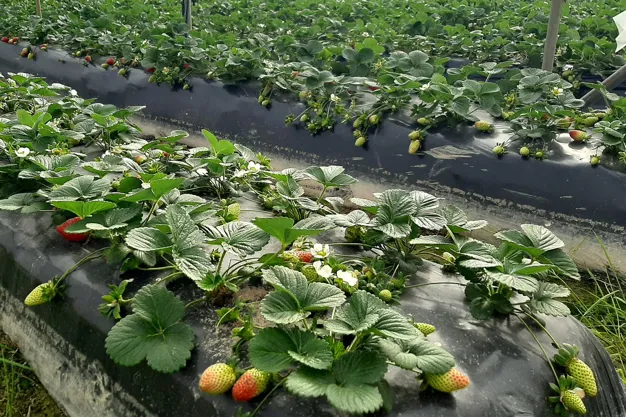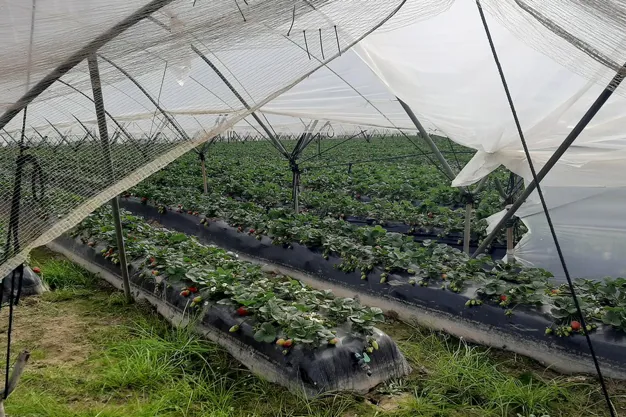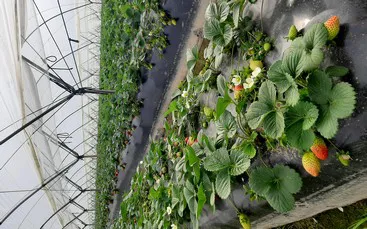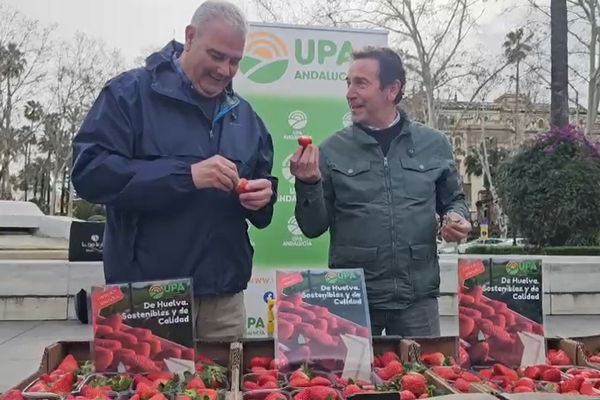The hepatitis A virus is not often detected in fresh foods, but alerts are issued from time to time, mostly for its presence on molluscs and berries. Last October, Italy detected the presence of the virus in Spanish mussels; a few months earlier, in May, Germany issued an alert for its detection in Polish blueberries, and in August 2022, Hungary warned of the presence of hepatitis A in frozen berries from Belgium.
Of course, such alerts are always of public interest to consumers, which is why the presence of hepatitis A in strawberries from Morocco has garnered much attention. However, the case is acquiring a new dimension as statements are released by the Andalusian government, reporting that the strawberries had been imported by a company in Huelva and were to be channeled to the Netherlands through a distributor in Seville.

"The detection happened on February 19, and the alert was not notified until March 4," says Manuel Piedras, from the agricultural organization UPA Huelva, which, immediately after the news broke in all media, decided to launch a campaign to promote the consumption of Huelva strawberries: "I eat Huelva strawberries because they are healthy, safe and sustainable. We want to know why it took so long for that information to be released, and if it is confirmed that a Huelva-based company was responsible, the Government of Andalusia should name and shame it. "Huelva requires clarification, as over 99% of the province's producers, who are innocent, cannot be left with their reputation in doubt."

"Every company carries out its own field and warehouse controls, in addition to those required by supermarkets themselves, and has certifications to ensure compliance with the guarantees required by Europe. Logically, it cannot be put into doubt that they are actually doing this, and consumers shouldn't have to wonder if the strawberries sold by a Huelva-based company are of Andalusian or Moroccan origin. Huelva needs clarification from the Administration."
"Importing is not a crime, nor is cultivating in another country, but if that company decided to have some of its own production in Morocco and has had this problem, it is only fair to provide clear information that won't hurt the reputation of Huelva's production, because we cannot forget that 97% of Spain's strawberry production is grown here."
 Rafael Domínguez of Freshuelva agrees with the words of Manuel Piedras. "At Freshuelva, we are completely unaware of the names of the companies referred to by the president of the Andalusian Government, neither the one from Huelva nor the one from Seville. I understand that he or his food safety department has that information, and we ask him to be more explicit. It is essential to be more cautious when making such statements," he says.
Rafael Domínguez of Freshuelva agrees with the words of Manuel Piedras. "At Freshuelva, we are completely unaware of the names of the companies referred to by the president of the Andalusian Government, neither the one from Huelva nor the one from Seville. I understand that he or his food safety department has that information, and we ask him to be more explicit. It is essential to be more cautious when making such statements," he says.
"At Freshuelva, we stand behind Huelva's strawberries, and we have no doubt that they meet the health and food safety standards demanded by Europe, given all the certifications that our fruit has and all the controls it undergoes. In fact, if you check the RASFF alerts, you will find none linked to our strawberries."
"We don't want to compare ourselves to anyone, but we want to make it very clear that Huelva's strawberries meet and have always met the market's quality and health standards, and it is not just us saying it, but also the food safety authorities."
"The protests demanding more controls on imports from third countries are proving us right"
A few days ago, in the heart of Seville, UPA distributed containers of strawberries to Sevillians and tourists, inviting them to consume Huelva's strawberries and guaranteeing their safety. As pointed out by Manuel Piedras, they provide "all kinds of quality guarantees and are sure to be healthy, safe, and sustainable."

It is worth noting that, as reported by the RASFF, the detection of the virus in strawberries dates back to February 19, amid a wave of protests in Spain, where imports from non-EU countries were –and are– among the sector's major concerns.
"In the end, the protests we are holding, demanding stricter controls on imports from third countries, are proving us right. We are not asking for their ban; we only want imports to provide the same guarantees that are demanded of us."
"Whoever decided to bring strawberries from Morocco to compete with ours must assume their responsibility," says Manuel.










